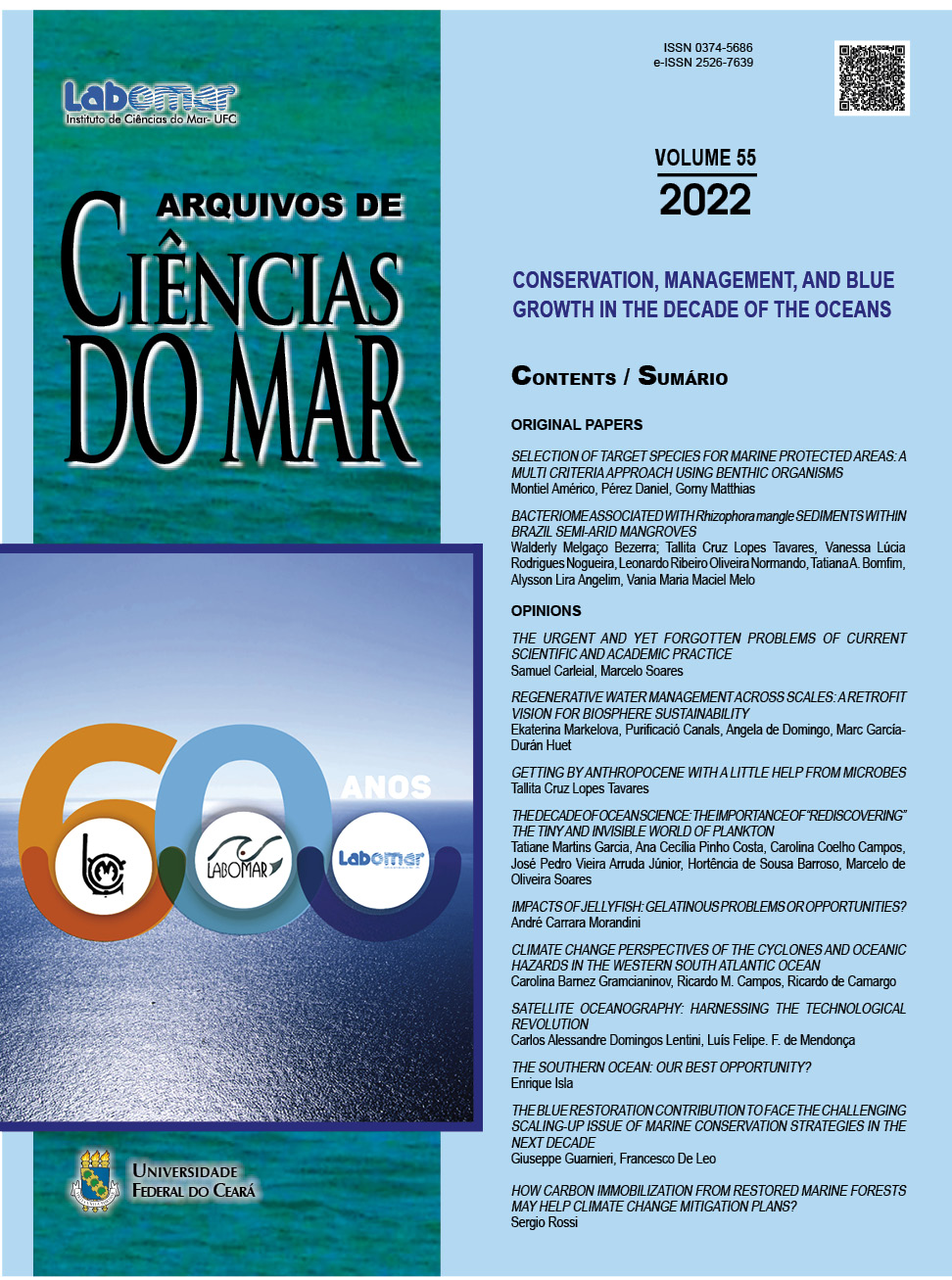THE BLUE RESTORATION CONTRIBUTION TO FACE THE CHALLENGING SCALING-UP ISSUE OF MARINE CONSERVATION STRATEGIES IN THE NEXT DECADE
A contribuição da restauração azul para enfrentar o crescente desafio da questão das estratégias de conservação marinha na próxima década
DOI:
https://doi.org/10.32360/acmar.v55iEspecial.78187Resumen
The continuing degradation of marine ecosystems is widely highlighted as having a significant impact on services they provide for human well-being. To this end, especially during the last decade, numerous national, regional and international aspirations, targets and commitments have been made in order to reverse the detrimental trend affecting the ocean health, which is expected to accelerate in the immediate future. Restoration actions are becoming a common strategy to speed-up the recovery pathway of degraded ecosystems. This recognition also depends on the fact that, in some cases, in addition to traditional conservation strategies (e.g. Marine Protected Areas and Maritime Spatial Planning), “active” restoration may be the only politically feasible approach able to increase the flow of marine ecosystem services to stakeholders, ensuring, at the same time, the mitigation of threats to coastal environments in a reasonable time lag. Given the time-bound target aimed to effectively protect/restore on third of global ecosystems in the upcoming decade, concrete considerations about the potential for scaling-up the restoration interventions across coastal ecosystems are required to prioritise and improve the strategies aimed to cope the urgent conservation issues faced by marine ecosystems at global scale. Here, capitalizing on the most upgraded information on restoration efforts worldwide carried out over nearly five decades, a synthetic (but not exhaustive) analysis of progresses is showed, which could helps to better address the upscaling issue of marine conservation strategies in the immediate future.
Keywords: marine ecosystem restoration, sustainable development, coastal habitats.
Descargas
Publicado
Número
Sección
Licencia
1. Proposta de Política para Periódicos de Acesso Livre
Autores que publicam nesta revista concordam com os seguintes termos:
- Autores mantém os direitos autorais e concedem à revista o direito de primeira publicação, com o trabalho simultaneamente licenciado sob a Licença Creative Commons Attribution que permite o compartilhamento do trabalho com reconhecimento da autoria e publicação inicial nesta revista.
- Autores têm autorização para assumir contratos adicionais separadamente, para distribuição não-exclusiva da versão do trabalho publicada nesta revista (ex.: publicar em repositório institucional ou como capítulo de livro), com reconhecimento de autoria e publicação inicial nesta revista.
- Autores têm permissão e são estimulados a publicar e distribuir seu trabalho online (ex.: em repositórios institucionais ou na sua página pessoal) a qualquer ponto antes ou durante o processo editorial, já que isso pode gerar alterações produtivas, bem como aumentar o impacto e a citação do trabalho publicado (Veja O Efeito do Acesso Livre).

